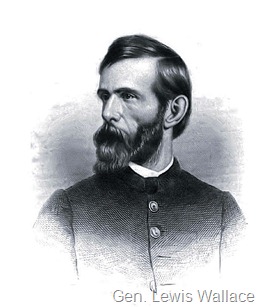May 10.—White House, on the Pamunkey River, Virginia, was occupied by a company of National cavalry, who secured seven thousand bushels of wheat and four thousand bushels of corn. The rebels had burnt the railroad bridge and town, and torn up the road for some distance towards Richmond.—N. Y. Commercial, May 12.
—The rebel schooner Maria Teresa was captured this day by the United States gunboat Unadilla.—(Doc. 32.)
—A Union meeting was held at Shepardsville, Carteret County, N. C, this day. H. R. Bell was called to the chair, and Thomas Hill was appointed secretary. The following resolutions were unanimously adopted:
Resolved, That we deeply regret the unfortunate occurrence of the present war now progressing between the Federal Government and the Southern States.
Resolved, That in our opinion said war was brought on by a few hasty politicians, and not by any act of the Federal Government.
Resolved, Further, that we believe it to be the duty of all Union-loving men to meet and speak their Union sentiments, and also to take measures to maintain and defend the Constitution of the United States.
Resolved, That we desire protection by our Federal friends.
Resolved, That since it has become necessary to appoint a Military Governor for the State of North-Carolina, we heartily concur in the appointment of the Hon. Edward Stanly, to fill that office, and agree to invite the said Edward Stanly to visit us at Shepardsville.
—A plot was discovered in Paducah, Ky., spread among the people there of secession proclivities, by which the town was to be handed over to the rebels within a week. Information was given by one of their number.—Nashville Union, May 11.
—New-Kent Court-House, Va., was occupied by the National forces under the command of General Stoneman. The rebels, on leaving the town, destroyed two buildings containing commissary and quartermaster’s stores. — Boston Transcript, May 12.
—Cumberland, Va., a small town on the Pamunkey River, was deserted by the rebels and immediately occupied by the National troops.— National Intelligencer, May 12.
— The iron-clad steamer Ironsides, was launched this morning at Kensington, Philadelphia, Pa., in the presence of an immense crowd. The christening was performed by Commodore Stewart, of the “Old Ironsides,” at whose suggestion the name of “New Ironsides,” was given. —A Naval engagement took place near Fort Pillow on the Mississippi River between a rebel fleet of eight iron-clad gunboats and a Union fleet of six. Four of the rebel boats had rams. Two of the rebel boats were blown up, and a third sunk, when the remainder retreated precipitately under the guns of Fort Pillow. The National fleet was commanded by Capt. C. H. Davis.— (Doc. 30.)
–By General Butler’s order, there were seized at the office of the Consul of the Netherlands in New-Orleans one hundred and sixty kegs, each containing five thousand dollars in specie.— (Doc. 33.)
—General Wool, with five thousand men, landed at Willoughby’s Point, in Hampton Roads, and immediately marched upon Norfolk, Va. At five miles from Norfolk he was met by a delegation of citizens, who formally surrendered the city into his hands. It was immediately occupied, and Gen. Viele made Military Governor.—(Doc. 11.)
—A Meeting of the citizens was held at Bay River, N. C, for the purpose of forming a company of Union Home Guards. F. B. Silverthorn was chosen President, and Mathias Powers Secretary. Mr. Francis T. Riggs offered the following resolution, which was passed by the meeting:
Resolved, That if any of our company betrays the trust reposed in him, by giving aid to or revealing any of the operations of this company to any rebels, without instruction to do so from the proper authorities, he or they shall be immediately apprehended, and dealt with as traitors deserve.
Over ninety-seven of the citizens signed the roll. The president of the meeting addressed them effectively, and was authorized to appoint a captain and three lieutenants for the company. The object of the meeting was to clean out the lower part of the county of all traitors whatsoever, by apprehending them and carrying them before the military authorities of the Federal government—Newbern Progress, May 24.



